The Unite the Kingdom protest exposed a dangerous fusion of Christian imagery and far‑right ideology, argues Guy Hewitt. The Church must urgently reclaim its message of love and justice, he says
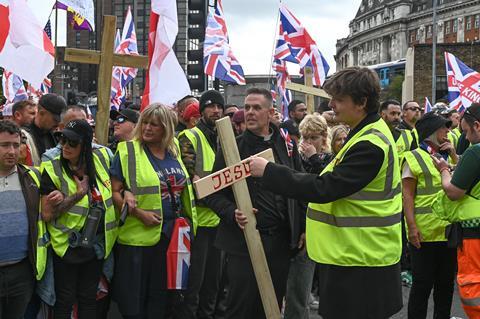
There is apparently a debate as to whether the Unite the Kingdom protest march was a ‘far right’ event. If you note the onstage lineup which reverberating a visceral cacophony of collective hatred of Muslims and migrants the answer is obvious. It certainly was.
Tommy Robinson told the crowd that Britain is “being invaded”, “being raped”, and, like “every single western nation” faced with “an orchestrated, organised invasion and replacement of European citizens”. It was a torrent of obsessive hatred, for which a ‘far right’ label might seem generous.
However, beyond the stage, the diversity of the marchers makes that label seem somewhat ill-suited. It seems some came to convey not their racism but their despair, both about the material deterioration of their lives but also their sense of voicelessness. If there was one phrase that may have resonated across the marchers, it was: ‘No one listens to us.’
However, it needs to be emphasised that across the UK, more people from Black, Asian, and other minoritised ethnic communities, are in poverty proportionate to white people.
The Ambalavaner Sivanandan quote “we are here because you were there,” is also pertinent in portraying the complex relationship between imperialism, colonialism, and migration. Notwithstanding, the march illustrated that sections of the white working class are being drawn to the far right not because they are hardcore racists but because they perceive that many of the old political outlets for their discontent have eroded.
The protest march underscored the toxic merging of an incipient form of mass discontent, the inability of the Left, in the wake of neoliberalism’s failure, to speak to working-class grievances, and the venomous malevolence of the far right that shapes so much of politics globally.
To neutralise this toxicity, we need to confront the zero-sum mindset and arguments about migrants and, in particular, Muslims being responsible for white working class tribulations, while also addressing the grievances that provoke so many of the latter.
Christian symbols, nationalist agendas
The protest demonstrated that Christian nationalism, already a force in America and increasingly defining in European culture wars, has taken root in Britain with anti-Muslim sentiment becoming normalised and radicalised under the guise of an ‘existential threat’ from outsiders.
The proliferation of crosses, Bible verses, and prayers at the protest – like the St George flags adorning streets across the country - superimposes a veil of false piety on a nativist message imbued with aversion towards the modern reality of multicultural Britain.
My multiple heritages make me aware that the quest for racial justice cannot be achieved unless we are all committed, and that this isn’t a struggle between race groups, but finding unity across them.
Historical origins of Race
Racism was not the natural state of affairs between white and black people. When Europeans first visited Africa, they encountered cities and empires as advanced as their own. With the ‘discovery’ of the so-called ‘New World’, however, the exploitation of these new colonial possessions required a workforce that neither the European nor the decimated Native American populations could supply.
The roots of modern Western racism are located in greed and a Eurocentric narcissism that gave Europeans a sense of dominion over the earth and all its resources. Through pseudo-science, social theory and a colonialised version of Christianity, Europeans and their North American cousins divided humanity between the ‘civilised’ and the ‘savages’.
In the words of Eric Williams, in Capitalism and Slavery (University of North Carolina Press), “slavery was not born of racism: rather, racism was the consequence of slavery”. There was no greater corruption of the gospel than the odious commingling of religion, politics and wealth accumulation within the institutionalisation of transatlantic slavery.
Unlike modern slavery, this great crime against humanity that enriched nations and individuals alike and provided the financial and organisational means to develop our modern world, was devised politically, constructed legally, justified theologically, and accepted socially.
This system of racial bias, instituted hundreds of years ago, manifests today in the current disparities in wealth, education, health and criminal justice outcomes, among others and has defined global socioeconomic and geopolitical relationships. Just as the gospel has been perverted to create racial outcomes, it has been similarly used to adversely affect outcomes on issues of gender, class, disability, sexuality and other protected characteristics.
Abrahamic solidarity
Alongside Christianity, the teachings of Judaism and Islam share the consistent Abrahamic message of welcoming the stranger and loving the neighbour.
In their 17 September Open Letter, with a 73 per cent surge in anti-Muslim assaults last year, British Muslim scholars and Imams conveyed their pain at the “relative silence from major Christian leaders and institutions in publicly challenging use of Christianity and debasing of their faith to spread Islamophobia and racism.”
They implored church leaders to condemn the secular co-opting and weaponising by the far right groups of Christian symbols to legitimise their anti-Muslim, anti-immigrant hate and racism.
For many from Global Majority Heritage and UK Minority Ethnic communities, the Whitehall gathering was reminiscent of National Front marches 50 years ago, but unnervingly, today is by no means a fringe movement.
Articulating an anti-racist theology
One of the most compelling things about our Lord Jesus Christ’s message and ministry was his radical inclusivity; the way he reaches out to those whom society would prefer to marginalise and oppress. When asked what was most important in expressing our faith, he emphasised the horizontal and vertical dimensions of loving God and loving others (Luke 10:27).
Addressing institutional racism and racial sin is not a theological addendum. Confronting the evils in society and embracing the marginalised is essential to our identity in Christ (Luke 4:16–21). This is a missional imperative as set out in the Anglican Communion’s fourth Mark of Mission, “to transform unjust structures of society” and one of the Church of England’s bold outcomes to “fully represent the communities we serve”.
The racial justice mandate flows not from identity politics but from our primary identity in Christ, for it is in the character and being of Christ that we find the reason and motivation to combat racism. In Christ, our differences are not erased but rather embraced, valuing the unique ways we each reflect the image of God.
Every neighbour, regardless of colour, class, creed, or any other protected characteristic is an image-bearer of God, and as such a sister or brother.
James H. Cone, the father of Black liberation theology, viewed the biblical story of Cain and Abel through the lens of racial injustice and oppression. He interpreted the narrative of history’s first murder as symbolic of the historical and systemic oppression of Black people by white Christians. Cain, in Cone’s eyes, symbolised White Supremacy while Abel symbolised the racialised poor and oppressed.
In his posthumous memoir, Said I Wasn’t Gonna Tell Nobody: The Making of a Black Theologian, he writes: “God is asking white Americans, especially Christians, ‘Where are your Black brothers and sisters?’… ‘And whites respond, ‘We don’t know. Are we their keepers?’ And the Lord says, ‘Yes’, ‘What have you done to them for four centuries? Your brother’s blood is crying out to me from the ground!’’
Black theology contends that dominant Western cultures corrupted Christianity, and the result is a mainstream faith-based empire that perpetuates self-interest, not God’s kingdom. Black theology asks whose side should God be on – the side of the oppressor or the side of the victims? If God values justice over oppression, then he must desire subjugated peoples to be liberated.
An instructive and inescapable influence on my anti-racism work, was the reality that during the first world war, less than a hundred years after Emancipation, black men from the Caribbean, with amazing grace, volunteered, and many died, for a king they had never seen, against an enemy they didn’t know, in lands they had never set foot upon. There is no greater love. Like Sojourner Truth, I will not allow my life’s light to be determined by the darkness around me.
Like Martin Luther King, Jr., I too believe that “we shall overcome because the arc of the moral universe is long but it bends toward justice.” This is a message that we all need to hear afresh, particularly when in our communities and nation, the language of exclusion and division are being normalised and the toxic tide of hate and racism is on the rise.
The role of the Church of England
Any beleaguered sense that the Church of England may be experiencing in its mission and ministry, should be subordinated to the need to assert a collective abhorrence of any perversions of the gospel message of inclusion, love of neighbour, and welcome for the stranger.
Desmond Tutu reminds us that if we are neutral in situations of injustice, we have “chosen the side of the oppressor.”
In 2009, the then archbishops Rowan Williams and John Sentamu publicly admonished the British National Party for using the language of faith “to foster fear”. However, then it was against a relatively fringe pursuit but with the embedding of the far right within mainstream politics, we are in new territory.
I was reassured by the inclusion of former archbishop Lord Williams, and the bishops of Winchester, Manchester, Southwark, Croydon, Bradford, Woolwich and Kingston among the signatories to the 19 September joint letter from church leaders voicing concern at the use of Christian symbols, particularly the cross, at the ‘unite the kingdom’ protest.
The time has come for us as a Church and a nation to reclaim both the flag and our faith that is being desecrated by those who would seek to use either or both to divide us. It is essential for the Church of England, an established institution within the public square, to recognise its crucial role in countering both extremism and vacuity in political dialogue, and exemplifying, in all its works, the Kingdom values of peace, justice, inclusivity and the integrity of creation.
Such a stance is consistent with the redemptive work in the Church following the 2020 apology for institutional racism, the 2021 commitment to the anti-racism policy framework, From Lament To Action, and the 2024 allocation of £100m towards a fund for healing, repair and justice, given the historic links to African chattel enslavement.
Notwithstanding their intent, will, or power, no politician, no legislation, no march nor protest, no amount of anti-racism training nor conscientisation, no resolve nor coercive measure can alone eradicate racism.
These strategies may provide limited solutions, but as racism is sin, a world enslaved to sin cannot alone overcome sin. In one of his most famous sermons, ‘Strength to love’, Martin Luther King, Jr, emphasised: “Darkness cannot drive out darkness; only light can do that. Hate cannot drive out hate; only love can do that.”
Keep the faith
Take the analogy of Kintsugi, the ancient Japanese practice of using gold and lacquer to restore broken pottery, symbolising the beauty of imperfection and the value of broken things. When we hold to the hope of Christ, the lover of broken things; when we bring our shattered selves to him, he, as the master craftsman, can make us whole again. The cracks formed by our suffering and human failing are healed when we allow our lives to be illuminated by the light of love divine.
Believing that the essence of all Christian doctrine and teachings are best summarised by 1 John 4:16: “God is love, and those who live in love live in God, and God lives in them.”
I conclude with a story from Winnie the Pooh, where Pooh Bear humorously responds to Piglet’s question about “how to spell ‘love’?” with the affirmation: “You don’t spell love…you feel it.”
May God continue to bless us all in our proclaimations of the good news as we continue to journey by faith, in hope and with the blessed assurance of divine love.
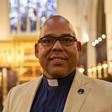













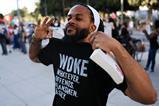
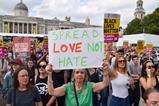
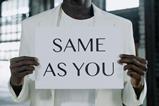





















2 Readers' comments